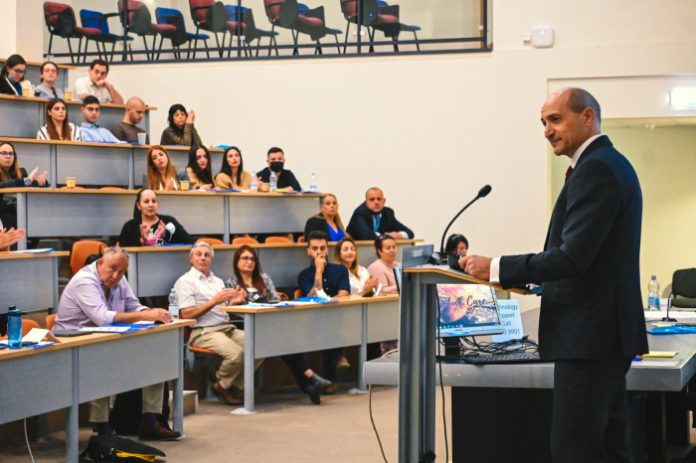During the first conference on palliative care in pediatrics in Malta, the Deputy Prime Minister and Minister for Health Chris Fearne announced that in the coming weeks the public consultation on the national strategy on the palliative care will be launched.
Chris Fearne argued about how even though this is an uncomfortable subject to discuss, statistics show that in Malta only 12% of deaths occur in private residences. Of these there is a substantial number of people with terminal illnesses who choose to continue living at home till the end of their lives, while receiving palliative care. Therefore, he stressed the importance of provoking a discussion about palliative care in order to ensure that everything possible is being done for these people to spend the last periods of their lives in the most comfortable way while the family members find the best support possible.
The deputy prime minister listed a number of initiatives that were included in the strategy, including the home palliative care teams, which will be multi-disciplinary teams that follow the people who receive palliative care and their families so that there is a source of continuous guidance and reassurance that the care prescribed by the treating doctors is being properly taken in the private residences. He explained that family doctors will be trained to offer this type of support.
Regarding the palliative care of young patients, Chris Fearne explained that even though this service is quite new, the palliative care strategy will also look at the transition between pediatric and adult care in order be facilitated both for teenagers and their parents.
The deputy prime minister thanked everyone who works in this field, in particular the organizers of the conference, which gave the professionals the opportunity to hear the experiences of each other and of foreign doctors, and also of the parents who went through this experience, so that the service offered to Maltese and Gozitan patients will always improve.
Photo: MFH










